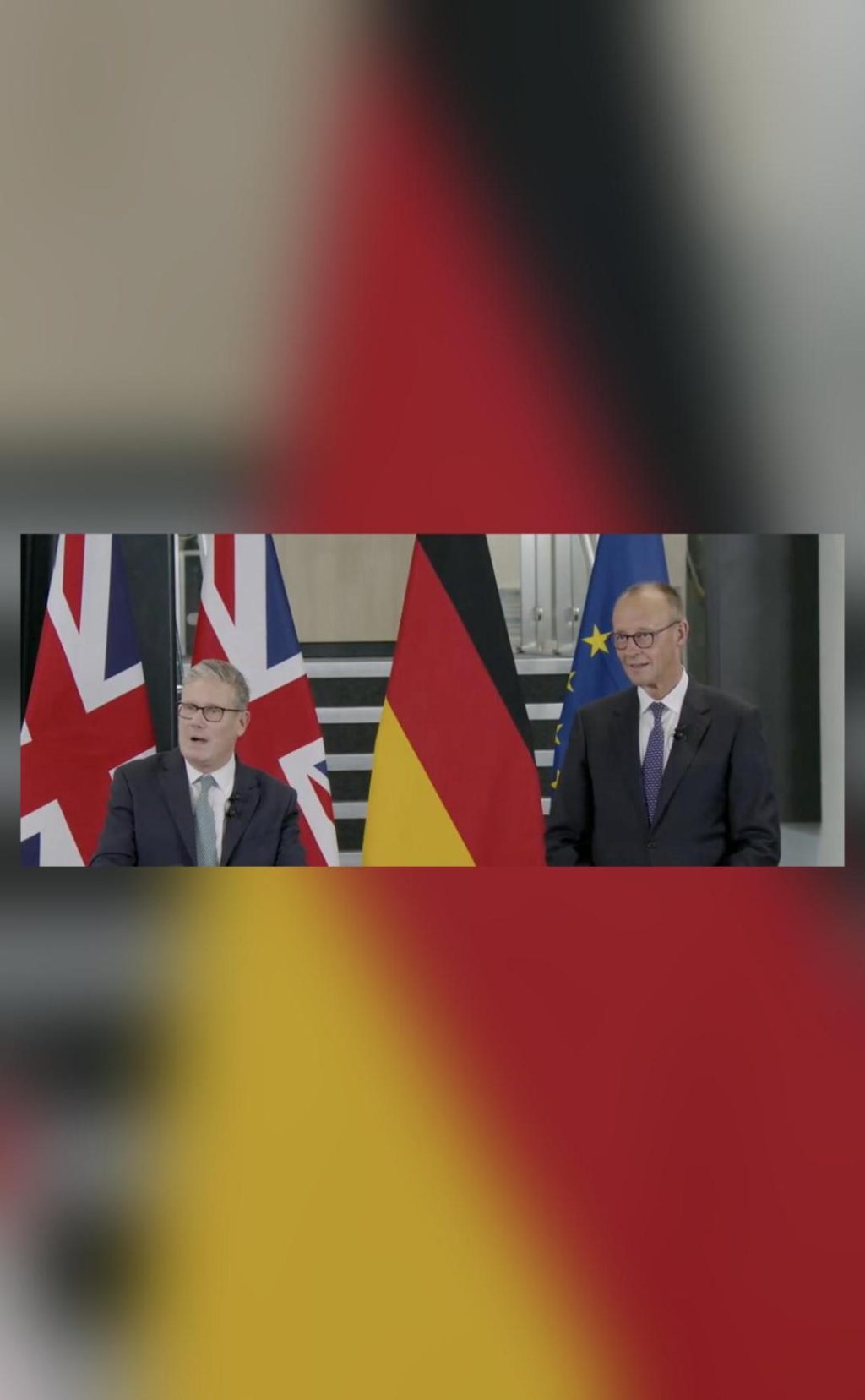
UK, Germany Sign Treaty to Enhance Defence & Migration Cooperation
In a significant move, British Prime Minister Keir Starmer and German Chancellor Friedrich Merz signed a historic treaty on Thursday, 80 years after the end of World War II, to strengthen defence and economic cooperation, as well as to jointly tackle migrant smuggling. The pact marks a new era of cooperation between the two nations, with plans to establish a new direct rail connection to boost economic and people-to-people ties.
The signing of the treaty comes at a time when both the UK and Germany face numerous challenges, including rising tensions across Europe, the ongoing impact of the COVID-19 pandemic, and the need to address the ongoing refugee crisis. By working together, the two nations aim to share knowledge, expertise, and resources to address these challenges and strengthen their relationship.
According to the treaty, the UK and Germany will collaborate on defence and security issues, including the development of new defence technologies, joint military exercises, and cooperation on cybersecurity. The pact also includes plans to strengthen economic ties, with a focus on promoting trade and investment between the two nations.
One of the key areas of cooperation is the establishment of a new direct rail connection between the UK and Germany. This new rail link will not only boost economic ties but also facilitate people-to-people connections, making it easier for individuals to travel and work between the two countries. The project is expected to create thousands of jobs and stimulate economic growth in both nations.
In addition to defence and economic cooperation, the treaty also addresses the issue of migrant smuggling. The two nations have agreed to share intelligence and best practices to combat this illegal and dangerous activity. This cooperation is critical in reducing the number of migrant deaths at sea and preventing the exploitation of vulnerable individuals.
The signing of the treaty marks a significant milestone in the history of UK-German relations. The two nations have a long history of cooperation, dating back to the post-World War II era. The treaty is a testament to the strong bond between the UK and Germany, as well as their commitment to working together to address the challenges of the 21st century.
In a statement following the signing of the treaty, Prime Minister Keir Starmer said, “Today, we mark an important milestone in the history of our relationship. This treaty demonstrates our commitment to strengthening our ties and working together to address the challenges we face. We look forward to deepening our cooperation in the years to come.”
Chancellor Friedrich Merz echoed Starmer’s sentiments, saying, “This treaty is a symbol of our strong and enduring friendship. We are committed to working together to address the challenges of the 21st century and to promoting peace, stability, and prosperity in Europe and beyond.”
The signing of the treaty has been widely welcomed by politicians and business leaders across both nations. The UK’s Chancellor of the Exchequer, Nadhim Zahawi, praised the pact, saying, “This treaty is a significant step forward in our relationship with Germany. We look forward to working together to boost trade and investment between our nations.”
The German business community has also welcomed the treaty, with the German Chamber of Commerce and Industry (DIHK) stating that the pact will “strengthen economic ties between the two countries and promote economic growth.”
In conclusion, the signing of the UK-German treaty is a significant development in the history of the two nations. The pact marks a new era of cooperation, with a focus on defence, economic, and migration cooperation. As the two nations face numerous challenges in the 21st century, their commitment to working together will be crucial in promoting peace, stability, and prosperity.



